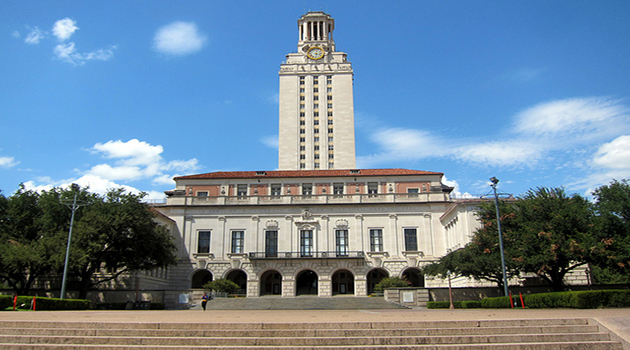Texas Campus Carry- Guns on College and Universities Campuses in Texas 2016
Update March 2016- Dallas News Publishes Campus Carry Tracker, which provides an interactive that shows where on each camps that guns are allowed.
Update February 2016- UT Releases Gun Policy and UH Faculty Hold Safety Seminar and told to alter curriculum and limit access to students to avoid being shot.
Senate Bill 11, passed in 2015, allows for the possession of handguns on college campuses by concealed handgun license (CHL) holders. It goes into effect on Texas college campuses on August 1, 2016, and requires gun to be concealed on campus. Because of recent state legislation and court rulings, eight states now have provisions allowing the carrying of concealed weapons on public postsecondary campuses. These states are Colorado, Idaho, Kansas, Mississippi, Oregon, Texas, Utah and Wisconsin
A statewide open carry gun law went into effect on January 1, 2016, which allows CHL holders to openly carry handguns. Anyone over the age of eighteen was previously (and still is) legally allowed to openly carry a “long gun” such as a rifle or assault weapon in public, with no training or background check.
Some supporters of the expanded gun laws cite the fact that the new laws only apply to CHL holders as support of its ‘safety’. Unfortunately, obtaining a CHL is very easy and Texas legislators even reduced the requir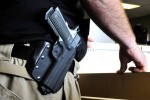 ement from sixhours of training to just four in 2013. They also removed the requirement that CHL applications provide the applicant’s Social Security number, which could allow dangerous individuals to slip through the screening process. Adding to these concerns is the fact that Texas allows reciprocity for CHL holders from other states, which means that someone can get a CHL online from a different state and then legally carry in Texas. For example, in Virginia an online CHL class only requires a one hour video and getting 15 out of 20 questions correct on a test.
ement from sixhours of training to just four in 2013. They also removed the requirement that CHL applications provide the applicant’s Social Security number, which could allow dangerous individuals to slip through the screening process. Adding to these concerns is the fact that Texas allows reciprocity for CHL holders from other states, which means that someone can get a CHL online from a different state and then legally carry in Texas. For example, in Virginia an online CHL class only requires a one hour video and getting 15 out of 20 questions correct on a test.
Fortunately, the “Dutton Amendment” to the bill, which forbid law enforcement from asking someone carrying a gun for ID, was removed before the bill passed. It was passed by House Republicans, but Democrats, police unions, and the public were able to voice concerns which led to its removal. But that doesn’t necessarily mean that those carrying guns must show ID or a CHL to cops. “A section in the government code requires license holders to show their license to any law enforcer who asks for it. But there’s no criminal penalty for someone who does not comply.” While a police officer may ask a person anything he wishes during a ‘consensual encounter’ or investigation, it is up that citizen to decide whether or not to reply. Because of this, many police departments will not be checking for CHLs or asking for ID, including Fort Worth Police Department, which announced a policy not to stop anyone carrying.
Other “interesting” facts about Texas gun laws are:
- Past psychiatric treatment does not necessarily make you ineligible for a CHL in Texas. “Eligibility for a concealed handgun license depends on whether or not your hospitalization in the psychiatric facility was a result of a court order, a board commitment, or a determination that you lacked the mental capacity to contract or manage your own affairs. If you voluntarily entered into the facility for treatment you may be eligible (for CHL).”
- Only some misdemeanors make an applicant ineligible for a CHL. Even felonies and serious misdemeanors only make a person ineligible for gun possession for five years after the conclusio
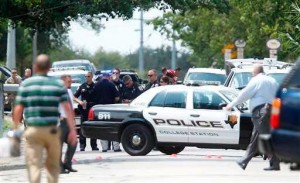 n of the criminal case. “Under Texas state law, a convicted felon may possess a firearm in the residence, in which he lives, once five years have elapsed from the date his sentence was discharged. This means the later of release from prison or parole.”
n of the criminal case. “Under Texas state law, a convicted felon may possess a firearm in the residence, in which he lives, once five years have elapsed from the date his sentence was discharged. This means the later of release from prison or parole.” - In 2014, there were 246,000 CHL applications in Texas, and only 776 were denied. There were 1762 suspensions of a CHL and 996 that were revoked, usually due to criminal charges or convictions.
Unfortunately, the bill is confusing and poorly written, which has led university officials to seek clarification from Texas State Attorney General, Ken Paxton. University officials are tasked with creating gun policies for their respective campuses, including where guns can and cannot be carried, storage policies and procedures, and how campus police should respond to students’ concerns. When colleges asked Paxton about the possibility of banning guns from college dorms, his response surprised many:
If a public institution of higher education placed a prohibition on handguns in the institution’s campus residential facilities, it would effectively prohibit license holders in those facilities from carrying concealed handguns on campus, in violation of the express terms of (the law),” Paxton said in his legal opinion provided. This legal opinion is nonbinding, but explained the legislators’ intent in the law: to allow all people with a CHL to carry in all public places that aren’t already banned (such as bars, racetracks, courthouses, etc.)
University of Texas
An advisory panel from University of Texas had previously recommended banning guns from college dorms. After the release of this opinion, “the UT advisory panel concluded that guns could not be prohibited from classrooms under the law despite opposition to the measure from faculty and students. University of Texas System Chancellor William McRaven, a retired Navy admiral who formerly led the U.S. Special Operations Command and organized the raid that killed al Qaeda chief Osama bin Laden, has called the campus-carry law detrimental to student safety.”
UT Arlington’s plans include “exclusion zones” where guns will not be allowed, such as mental health services, and athletic facilities. UT San Antonio created a task force to provide recommendations on gun policy, which included not providing gun storage, required staff training, and excluding certain personnel. In addition to standard exclusion zones where guns are not allowed, UTSA proposes limiting them also in their recreation center, science labs, testing center, and library. Texas State University also created a task force and held several public forums to discuss the issue. They are also recommended excluding guns from areas populated by minors, and counseling areas.
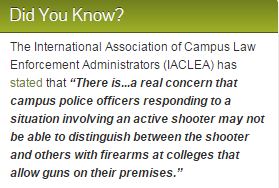 Private universities have the right to opt out of this new law, however. So far, most of the state’s major private schools have, including Baylor University, Texas Christian University, Southern Methodist University (SMU), Trinity University, and Rice University.
Private universities have the right to opt out of this new law, however. So far, most of the state’s major private schools have, including Baylor University, Texas Christian University, Southern Methodist University (SMU), Trinity University, and Rice University.
At a Texas Tribune higher education symposium on Nov. 16, Baylor University President and Chancellor Ken Starr said campus carry is a “very unwise public policy” and he has “little doubt” that the rule will not pass on his campus, which later proved correct.
Sadly, the law is due to take effect on the 50th anniversary of one of the deadliest U.S. gun incidents on a U.S. college campus when a student named Charles Whitman killed 16 people by firing from a perch atop the clock tower at the University of Texas at Austin, the state’s flagship public university.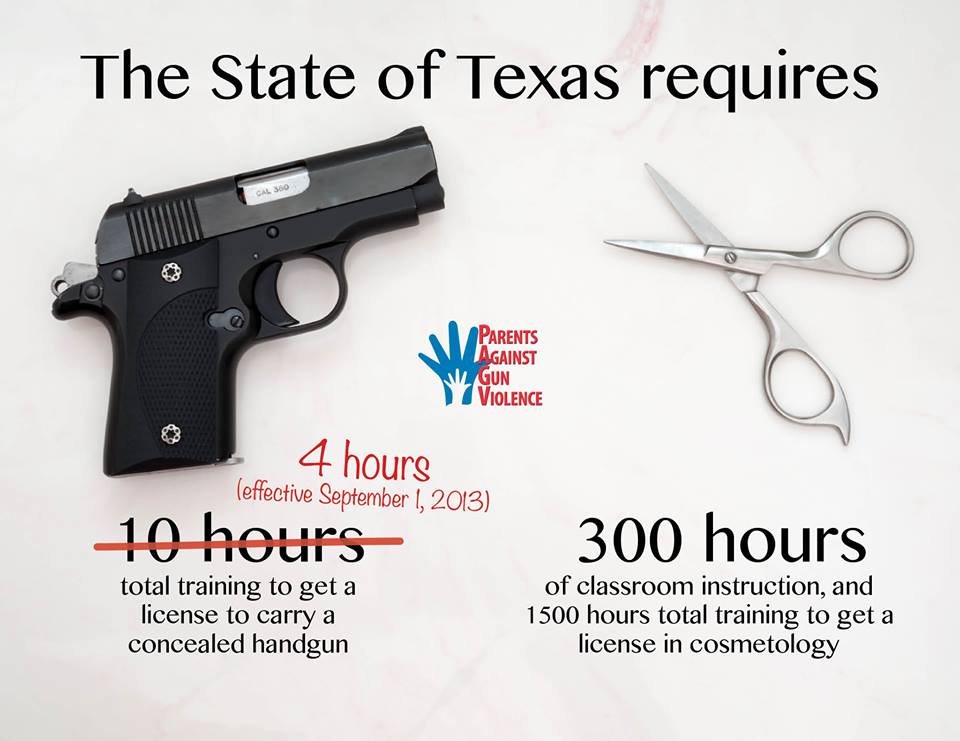
Other sources: http://www.texastribune.org/2015/12/18/smu-opts-out-campus-carry/
http://www.texastribune.org/2015/11/30/rice-university-chooses-opt-out-campus-carry/
http://www.huffingtonpost.com/entry/texas-guns-in-dorms_5679bff1e4b06fa6887f2767
http://keranews.org/post/many-texas-colleges-concerns-and-questions-about-campus-carry-gun-law
https://www.txdps.state.tx.us/rsd/chl/reports/demoreportscy14.htm#
